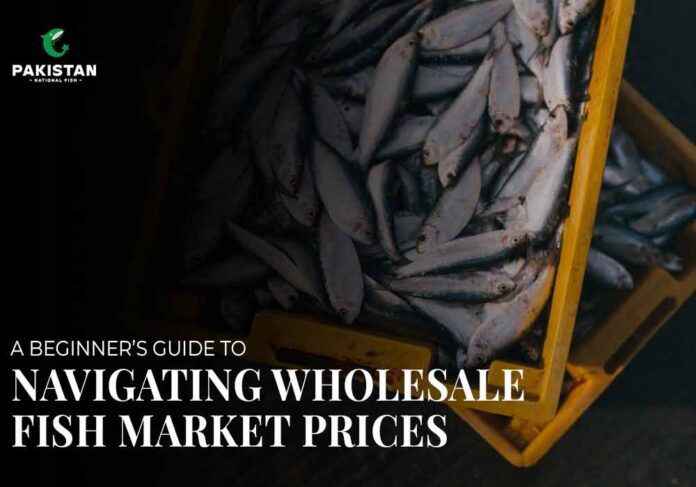Wholesale fish market prices can be volatile due to various variables. Understanding these prices and other useful information can save money and improve seafood quality, especially for restaurants, caterers, and businesses in the Fish market.
Here’s a list that you will find very helpful in understanding wholesale fish market prices:
- Knowing how wholesale fish markets work
- Factors affecting wholesale fish market prices
- Tips to handle the prices of the wholesale fish market
- How fish prices fluctuate in the wholesale markets
- Advantages gained from bulk purchasing
- Dealing with fish market prices at wholesale
How Wholesale Fish Markets Work?
Supermarkets are active markets in which suppliers, distributors, and restaurant operators are always present. Unlike retail selling, wholesale selling, including that in the fish markets, is done in large volumes. The prices of fish in the wholesale market depend on factors like availability environmental influences, demand, and quality of fish. They are cheaper than retail markets and hence suitable for bulk buyers.
- Gets Advantages from Wholesale Marketplaces: Wholesalers of seafood, for example, restaurants, caterers, and fish markets benefit a lot from the wholesale fish markets. For example, the wholesalers of fish products in the fish market provide many such enterprises with the needed types of fish and seafood at reasonable costs.
- Auction-Style Sales: Certain wholesale fish markets engage in live bidding, letting the highest offer win the batch of fresh fish. This paper aims to give the buyer new to these types of auctions an insight into how to obtain favorable contracts.
Factors Affecting Wholesale Fish Market Prices
Many aspects influence the fish prices at the wholesale level and those in the Fish market in this case as well. Knowledge of these can assist the buyers and plan for their purchases while being in a position to look for a bargain.
- Seasonality: Seasonal distribution greatly affects fish availability and hence the price. For example, species like salmon fish and halibut have some kind of seasonal variations. Knowing these patterns means the buyer of fish from the wholesale fish market will be in a better position to identify when the price will be the lowest.
- Environmental Conditions: It is clear that factors such as oceanic and weather evoke supply for fish, and subsequently, certain prices. For example, a storm can reduce the catch volume size and trigger short-term price increases in wholesale markets.
- Location and Transport: The price at which wholesalers sell their stock depends in large part on their location and distribution across the country for the inland buyers.
- Demand Cycles: Such a need may vary about particular festivals, celebrations, and events the kind of fish that is fashionable now and then.
Tips To Handle Wholesale Fish Market Prices
New entrants into the wholesale markets can benefit from the following strategies to get the best deals:

1. Research and Compare
The pricing of wholesale fish markets also depends on the vendor. Using the information on the prices of today’s products and services in different markets or different vendors helps to see the standard and attractive offers.
2. Build Vendor Relationships
By developing a relationship with the vendors there is a benefit such as at the wholesale fish market. As a result, vendors can share with their loyal customers valuable information about the trends within the market, as well as provide first pick of the newly stocked, fresh catches.
3. Quality over Price
They can also be lower due to stock turnover, which means selling goods that prolonged their presence on the shelves. When shopping at wholesale fish markets focus on buying fresh fish and quality fish. Fresh fish is better in quality while the quality of the fish is higher it tends to stay fresh longer as compared with other fish hence it has to cost a little bit more than the normal fish.
4. Shop at Off-Peak Times
Some fish may be cheaper to purchase during certain times of the year or within certain time frames. Although customers can buy fish at different times during the day, certain fish can be cheaper during certain time detections. For instance, Fish market’s wholesale fish market could have the ERRP early morning or during trading hours.
How Fish Prices Fluctuate in the Wholesale Markets
All types of fish are charged differently depending on standards such as demand, fashion, place, and time. Willingness to pay top dollar is rational among these species because the types of fish vary differently as shown in the wholesale price trend below.
- Salmon: Wild salmon tends to cost more than the farmed ones, much higher, especially during a certain period of the year. The newly developed wholesale fish may have cheaper prices on fresh /local and farmed fish.
- Tuna: Fresh sea foods like tuna especially the best-processed kind like the bluefin are expensive. The market of Fish market usually provides good offers for albacore and skipjack tuna which is usually cheaper than sushi grade.
- Shrimp: Coastal shrimp price depends on if it is wild-caught or Jeep farmed shrimp prices vary according to the type of shrimp. One could buy from wholesale fish markets where they sometimes offer discounts on fresh locally produced shrimp.
- Cod and Pollock: Cod and pollock which are whitefish are easily available in the wholesale fish markets and the prices are comparatively more predictable as a result of which these are favorites among restaurants.
Advantages Gained From Bulk Purchasing
Seafood is quite cheap when purchased from wholesale fish markets; however, this must be done with a lot of preparation.
- Storage: Bulk fish must be properly stored to avoid compromise. Items bought in Fish markets, especially fresh food should be either kept in the cold or transported as soon as possible to prevent going bad.
- Freezing for Longevity: Freezing is also a good preservation method, however, the reader should be informed that some kinds of fish freeze better than others. The fish market’s wholesale market staff may help explain which types are best for freezing.
- Understanding Shelf Life: Every kind of fish has a different shelf life. It is important to be conversant with these time lengths when sourcing fish from any wholesale fish market in Fish market so that quality can be enhanced and wastage minimized.
Dealing With Fish Market Prices At Wholesale
In some circumstances, customers, especially those buying in large quantities, can negotiate slightly on the price of the stocks. Wholesale fish markets may offer flexibility in pricing, especially if you apply these tactics:
- Buy in Bulk: Potential buyers are usually inclined to negotiate with sellers when quantities of the produce are more. On this basis, other things being equal fish markets are not an exception where the buyers can negotiate quantities discount.
- Ask for Recommendations on Less Popular Fish: There are more obscure species available at Fish Market’s wholesale fish market that are cheaper and can be easily used as alternatives. Asking about these options could help to save a lot of money.
- Time Your Visit: Almost all wholesale fish market locations around the globe including Fish Market offer a discounted price when it is closing time. It may be worth going to the market at these times to get fresh seafood at cheaper prices.


